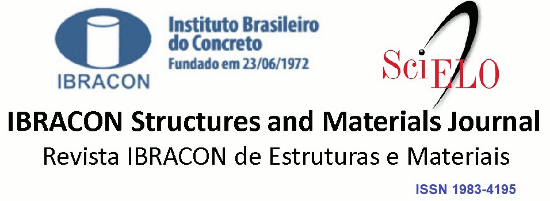Abstract
This paper studies the influence of the corrosion degree calculated by the mass loss and by the smaller diameters on the yield strength, ultimate strength and final elongation. Reinforcements buried and naturally corroded for 60 years were studied. The mechanical properties of the protruding reinforcing steel were compared to reference bars, which also remained buried for 60 years, but without going through the corrosion process. Micrographs, besides the chemical composition and the characterization of the aggressiveness of the soil were realized. The micrographs and the chemical composition show the presence of pits in the reinforcements and sulfur contents for steel above the prescriptions of the time when the foundations were initially implement, respectively. The results also show that the effects of pitting corrosion on the mechanical properties of the naturally corroded bars may not be adequately expressed by the mass loss. This type of corrosion (pits) produces geometric variations in the cross sections along the length of the test specimens, generating stress gradients between successive sections. This has a noticeable impact on the mechanical properties of the reinforcements. In general, the effects of corrosion are more pronounced on the ductility of the reinforcement. Regarding the aggressiveness of the soil, high corrosion rates were identified in the reinforcement, even with the soil being classified as essentially non-corrosive.
Keywords:
reinforcement corrosion; durability; mass loss; smallest diameter; corrosion degree; mechanical properties
